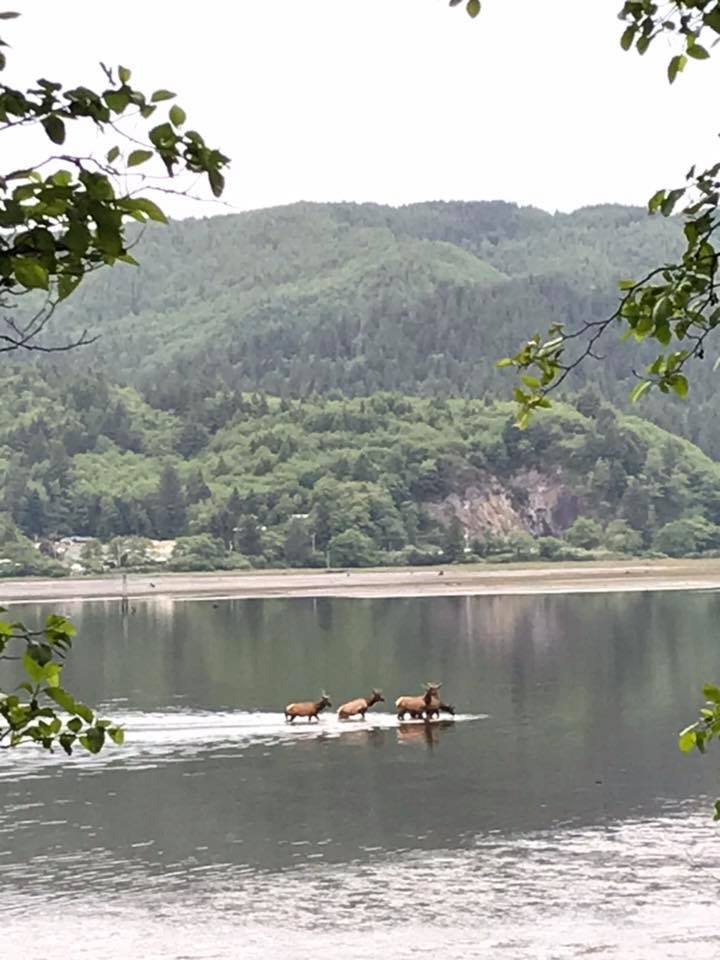Native eelgrass beds serve a critical role in healthy estuary ecosystems here in the Pacific Northwest. This aquatic plant provides nursery and refuge functions for several fish and shellfish species, including threatened salmon and steelhead. Eelgrass beds also provide a buffer against ocean acidification, and help sequester carbon, cycle important nutrients, and stabilize sediments. The Oregon Department of Fish and Wildlife has identified eelgrass as a “species of greatest conservation need.”
In Oregon’s Tillamook Bay, this essential component of the ecosystem is at risk. For years, Pacific Seafood–one of the largest seafood suppliers in the United States—has used a destructive mechanical process for cultivating and harvesting oysters on nearly 1,500 acres of the bay. This involves dragging a large harrow behind a boat through the Tillamook Bay substrate, over and over again–first to ensure the oysters don’t sink into the mud, and then to harvest the oysters when they are ready. This process damages and destroys beds of native eelgrass by ripping eelgrass out of the sediment, and also scrapes large amounts of that sediment from the floor of the Bay—leading to increased turbidity as the dredging vessel moves through the water.
This mechanical dredging is threatening Tillamook Bay’s diverse aquatic life— long a crucial part of the local economy. It’s also damaging the livelihoods of local fishing guides, who now regularly experience tangled fishing lines and clogged boat motors from the eelgrass mats excavated by Pacific Seafood’s operations.
Remarkably, to this point Pacific Seafood has avoided environmental regulation for its destructive mechanical harvesting activities, in large part by strategically purchasing older “legacy lease” sites that were originally issued decades ago, before many modern environmental restrictions were in place.
NEDC is now focused on protecting Tillamook Bay by putting an end to these unregulated, harmful operations. In October, NEDC and our partners at the Northwest Guides and Anglers Association sent Pacific Seafoods a 60-day Notice of Intent to Sue Letter, alleging that Pacific Seafood is violating the Clean Water Act by failing to obtain a necessary permit. Section 404 of the CWA requires a permit for any activity that results in the discharge of dredged material to U.S. waters. Pacific Seafoods’ mechanical oyster cultivation activities clearly require such a permit: its vessels and equipment scrape sediment, biological material like eelgrass, and other dredged material from the Bay floor, and then discharge or redeposit it to the water column and nearshore waters of the Pacific Ocean. But after nearly two decades of these activities, Pacific Seafood has failed to even apply for a Section 404 Permit to authorize its extensive dredging operations.
This year, we will be working diligently to ensure that Pacific Seafood is adequately regulated under the Clean Water Act. It is essential that any oyster cultivation activities in Tillamook Bay are done in a manner that protects native eelgrass and the rest of this sensitive estuary ecosystem— along with the people that work and recreate there.
NEDC is represented in this case by Jamie Saul of the Wild and Scenic Law Center. Keep an eye on our website for updates on this important case!
Northwest Environmental Defense Center
www.NEDC.org


